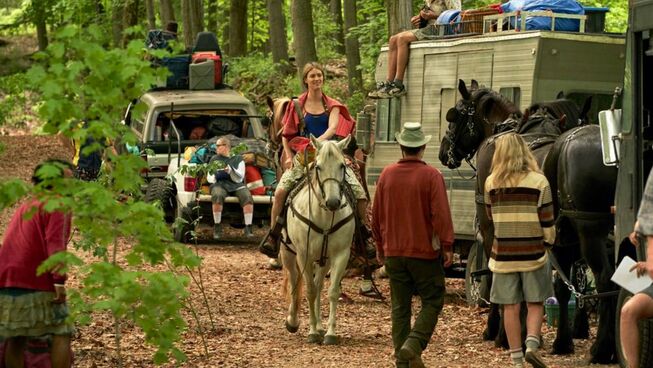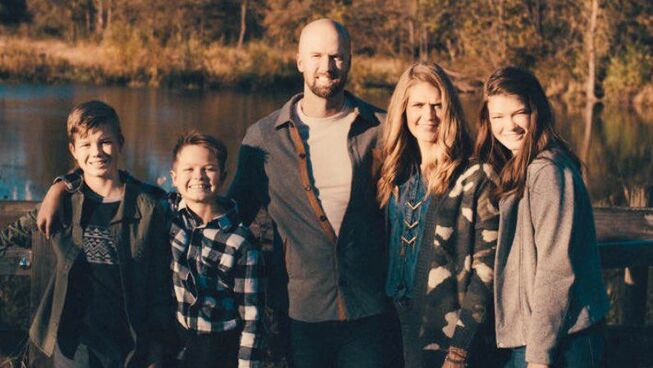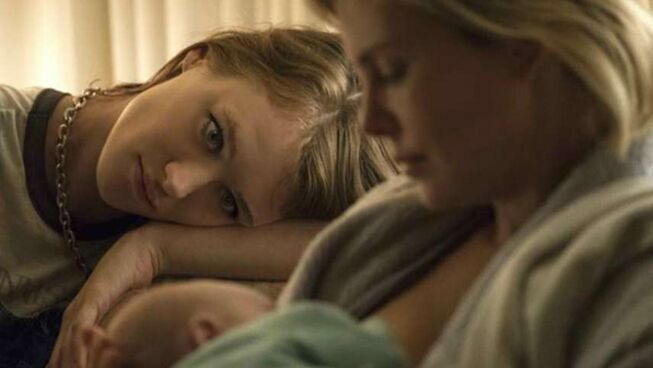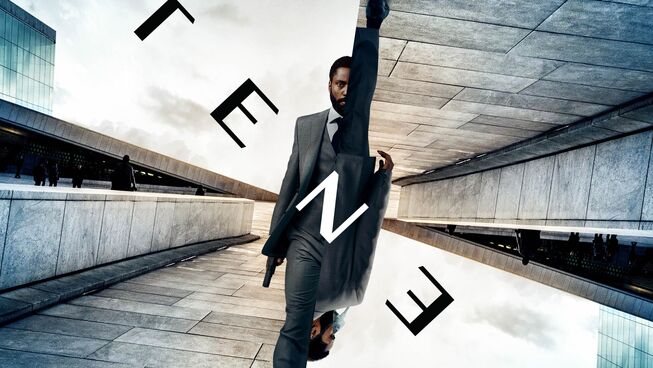
4.5 out of 5 stars
“What was lost in the collapse: almost everything, almost everyone, but there is still such beauty.”
The globe is entering year three of the pandemic and Omicron threatens to upend life once again. Many are experiencing the post-traumatic stress of Covid fatigue. The thought of committing to a 10-episode miniseries about a flu pandemic that devastates the world ranks next to quarantining another ten days. Ironically, this group of people would benefit most from experiencing Patrick Somerville’s (The Leftovers) adaptation of the popular 2014 novel by Emily St. John Mandel called Station Eleven. The show is a beautiful departure from the usual ‘sound and fury signifying nothing’ that describes most dystopian novels and films. Station Eleven is more poetry than apocalypse and more story than a catastrophe. It is a mosaic of compelling and colourful character arcs that benefit from a narrative that moves fluidly between interesting fragments and then unveiling a piece of the larger story. In a bizarre coincidence, the production of this series began in early 2020, before the Covid pandemic gripped the globe. Production was delayed for more than a year until shooting started again in 2021.
HBO Max and Stan are scheduled to release all ten episodes over several weeks in December and January.
The series opens in a Chicago theatre at Shakespeare’s King Lear playing. A man named Jeevan Chaudhary (Himesh Patil) is sitting in the audience when he suspects the lead actor might be having a heart attack. He rushes the stage to perform CPR, but is too late. In the ensuing commotion, Jeevan notices a bewildered young actress standing alone named Kirsten (Matilda Lawler) watching this real tragedy unfold. He seems to be a decisive man whose moral compass continually guides him back to helping those in need. Later, we learn that Jeevan was a paparazzo in Hollywood and is training to be an EMT. He feels obligated to make sure Kirsten makes it back home safe, so an unusual friendship begins. While on the way to Kirsten’s house he receives a frantic call from his sister and ER doctor, Siya. Apparently, a mutated flu virus with 99% fatality is sweeping through Chicago. Jeevan needs to quickly get to the high-rise apartment of his brother Frank and barricade it from the world. He has interactions with strong familial characters like Siya stress the abrupt and indiscriminate cruelness of the pandemic. The young doctor's few moments of reflection with her brother are familiar and heartbreaking. We know Jeevan will never see his sister again. Likewise, when Kirsten makes several attempts to reach her mom via text, the response is chillingly detached: “The body of the owner of this phone is in the morgue at Lakeview Memorial Hospital. Do not come here.”
Station Eleven’s non-linear structure is reminiscent of Lost, the hit show that first aired in 2004. Like the JJ Abrams tale, this new series is free to jump in and out of characters’ lives anywhere along the pre- and post-pandemic timeline. In episode two, the story jumps twenty years into the future where a remnant of survivors has adjusted to life after the apocalypse. Grownup Kirsten (Mackenzie Davis) is a member of the Traveling Symphony, a troupe of actors who perform Shakespeare for the remaining communities. These groups have settled near the Great Lakes along a circular route called the ‘Wheel.’ The narrative weaves in and out of time and character intentionally, almost like a Shakespearean sonnet. The show’s pacing is methodical, and its writing is disciplined.
The fates of these main characters are interconnected, but to what degree? Conditioned viewers might expect standard mayhem and carnage from another story about the collapse of civilization. These apocalyptic tropes are largely assumed until a mysterious man known as the Prophet forces Kirsten and the Traveling Symphony to change course and leave the Wheel. The show’s creators have assembled a fantastic ensemble of relatively unknown actors. Matilda Lawler, as a young Kirsten, is perfect. Aside from Mackenzie Davis (Terminator: Dark Fate, Tully) as an older Kirsten, most will not recognise many supporting cast members. This works in the series’ favour because each character is worthy of their own personality and story.
Station Eleven reminds us that throughout the course of human history and particularly during the Covid pandemic, people have shown a remarkable ability to adapt to a new normal. In times of crisis, humans are drawn to the resilient beauty and permanency of art that has a way of strengthening and propelling the human spirit. The ability to appreciate the beauty of art, in all forms, separates man from beast and through story we find purpose and meaning. As the saying goes, ‘the show must go on.’
REEL DIALOGUE: Do you need to be an artist to appreciate Station Eleven?
No, but it might make you appreciate your very existence.
To appreciate the artistry of this post-apocalyptic series, it needs to be clear that the storyline is accessible for anyone. It is no different than attending an art museum, walking through a sculpture garden or even going through the local botanical gardens. Art comes in various forms, and appreciation manifests itself in different ways. It is why some love contemporary art, and others only can appreciate the classics.
The more profound question is, why do humans create art at all? It is a complex idea to consider, but the simple but profound answer is that a creative God forms us. The true master artist inspires the best of art. The human form and the rest of nature arouse the artist in all of us because it is part of our very DNA. The created are creative because we are the artistry of the master creator.
'But now, O Lord, you are our Father; we are the clay, and you are our potter; we are all the work of your hand.' - Isaiah 64:8






